Rugal

Police officer Kang Ki-beom lost his eyes and his wife and was set up for the whole thing after he put all his efforts into taking down the large criminal organization Argos. Now recruited to the super-secret NIS special task force known as “Rugal”, where the members are given biotechnology implants to replace their missing body parts and thus gain the equivalent of superpowers, Kang Ki-beom, and his teammates set out to really take down Argos, and bring his wife’s killers to justice!
The show is full of kick-ass fight scenes, fun Robocop-like scenes courtesy of Kang’s bionic eyes and his co-worker’s replacement parts, and all the Korean cop drama you can shake your kim-chi at!
https://www.youtube.com/watch?v=DZtgPv3LjrI
Mystic Pop-Up Bar

Mobile outdoor tent pop-up bars known as pojangmacha are a staple in Korea, but this one is special! Run by sharp-tempered proprietress Weol-ju and her stoic partner Chief Gwi, Mystic Pop-up Bar actually solves their client’s issues through a supernatural method of dream incubation. Both Weol-ju and Chief Gwi are spirits sent back to the Living Realm as a punishment; Weol-ju has to settle the grudges of 100,000 souls to be forgiven for her crimes in a past life and Chief Gwi has sworn to help her.
Han Kang-bae is a kind young man who was cursed since he was little with the ability to make anyone pour out their innermost truths to him through physical contact. And when Weol-ju meets hapless Han Kang-bae, it’s a match made in the supernatural realm, and ripe for all kinds of nefarious shenanigans!
Full of heart and snark and the continual reminder that people really need to just talk to each other instead of keeping it all in, Mystic Pop-up Bar boasts shades of the beloved Japanese anime Xxxholic and is a great supernatural jaunt for a Korean drama.
https://www.youtube.com/watch?v=m0RfpPHksRA
100 Days My Prince

The first of a few saeguk (Korean historical drama) entries, this one begins with an unusual premise – a prince suffering amnesia who finds love amongst the common people.
So Lee Yul is the crown prince, whether he likes it or not, after a successful coup completely rearranges the power and King of the Court. From a devastated boy who loses his beloved mother at a tender age too, he grows into a bitter and cold young man who seems to delight in pegging-down everyone around him. Resentful and angry, during a drought plaguing the kingdom and everyone else plaguing him about consummating his marriage to the crown princess, Lee Yul commands for all unmarried people under a certain age to wed.
And then en route to the rain ritual, a botched assassination attempt sends the crown prince with a head wound amongst the common folk, to be taken care of by Hong-shim, her adoptive father, and a cadre of other very-common peasant friends. Facing arrest if she doesn’t obey the new law, Hong-shim ends up marrying the newly-arrived and rechristened amnesiac Won-deuk, and hilarity ensues!
https://www.youtube.com/watch?v=_LxsJGR7DgU
Rookie Historian Goo Hae-ryung

A fictional story of one of the first four female historians of the Korean Joseon period to ever be involved in compiling the Veritable Records of the dynasty.
Goo Hae-ryung is plucky and smart, but also young and undeniably female, which of course means everyone thinks she’s destined for an arranged marriage with a stranger, a passel of children, and likely young death from overwork. Instead, Goo Hae-ryung takes her destiny in her own hands and determinedly joins the testing for female historians, passing the challenge and joining a highly exclusive formerly mens-only club of historians that compile the Veritable Records for future generations.
As she struggles to work on the same level as the men, Hae-ryung meets the throwaway prince Yi Rim, himself an frustrated and overlooked soul who loves to write romance novels, of all things, and that earns him arrogant sniffs from his peers too.
Workplace romance shenanigans ensue, the constant struggle for the stability of the Joseon dynasty leads to life-threatening political entanglements, and through all this, Rookie Historian Goo Hae-ryung is there to fearlessly endure and record it for the precious historical records.
https://www.youtube.com/watch?v=GqaGhUJ9Vgs
My Country The New Age

Another saeguk entry, this one focuses more on military battles and aristocratic political mongering, though there is a small, sweet romance laced throughout the bloody business; a pretty pair of pink shoes abandoned on the battlefield as Korea fights its blood-soaked way from the Goryeo dynasty to the new Joseon dynasty.
A pair of friends begin the story by taking the state military exam together – Seo-hwi is a blacksmith and the disgraced son of a man wrongly executed for embezzlement, while Seon-ho is technically an aristocrat but still looked down upon as his mother was a concubine. Seon-ho commits an unforgivable act of betrayal against Seo-hwi at the exam, setting off a downward spiral that pits the two brothers at odds with each other, set against the backdrop of epic dynastic changes as one era ends and a new one attempts to rise from the ashes.
Lavish with well-made fight scenes and the kind of drama and tragedy that Korean shows are famous for, My Country The New Age is a tear-jerker of the finest quality.
https://www.youtube.com/watch?v=khANmq-3Too
Bonus entry – Kingdom

Yet another saeguk entry, Kingdom is of course set in the Korean Joseon period and is full of your standard political and social strife, but with one significant addition – zombies!
Three years after the fictional Unpo Wetland Battle, where 500 Korean soldiers and the governor-turned-general defeated an invading Japanese army of 30,000 using some terrible secret methods, Kingdom skillfully weaves a horrific storyline of the unquiet dead through an already-epic tale of dynastic betrayal and manipulation. Featuring a starring role from Bae Doona (Sense8, The Host, Cloud Atlas) as the physician’s assistant turned war medic Seo-bi, Kingdom boasts two whole seasons available on Netflix now!
https://www.youtube.com/watch?v=4l-yByZpaaM

Movie
Wicked Soars As A Dazzling Spectacle
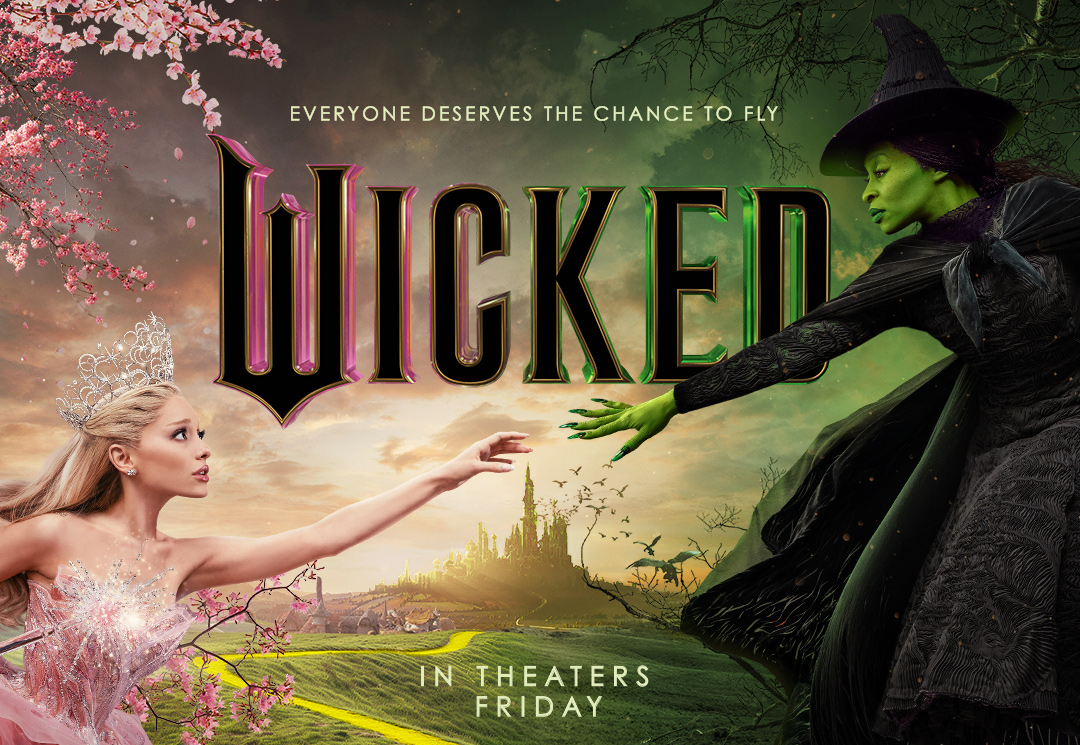
Jon M. Chu’s Wicked, the long-awaited cinematic adaptation of the Broadway musical, soars as a dazzling spectacle that captivates audiences with its lush visuals, heartfelt performances, and rich storytelling. The film, the first in a two-part series, delves into the origins of Elphaba and Glinda, exploring their unlikely friendship and the events that transform them into the Wicked Witch of the West and Glinda the Good.
Cynthia Erivo (Elphaba) and Ariana Grande (Glinda) lead the cast with exceptional performances. Erivo’s powerful vocals and nuanced portrayal of Elphaba’s internal struggles bring depth to the character. Grande, in her most notable film role to date, is both hilarious and heartfelt as Glinda, perfectly capturing her charm and comedic timing. Supporting performances by Jonathan Bailey (Fiyero), Michelle Yeoh (Madame Morrible), and Jeff Goldblum (the Wizard) add layers to the narrative, enriching the world of Oz with compelling subplots.
Chu, known for his work on Crazy Rich Asians and In the Heights, brings his signature style to Wicked, blending vibrant visuals with emotional resonance. The production design by Nathan Crowley is stunning, vividly rendering Oz with grandeur, from the Emerald City to Shiz University. Paul Tazewell’s costume design is equally striking, updating the Broadway look with cinematic flair. The score, by Stephen Schwartz and John Powell, retains iconic musical numbers like “Defying Gravity” while incorporating new arrangements that heighten their cinematic impact.
Critics have hailed Wicked as one of the best musical-to-film adaptations in decades, rivaling Chicago and Mamma Mia. Chu’s decision to split the adaptation into two parts allows for a deeper exploration of the story, giving audiences time to connect with the characters and their journeys. Fans of the Broadway show will appreciate its faithfulness to the source material, while newcomers will be enchanted by its universal themes of acceptance, ambition, and friendship.
With Wicked, Jon M. Chu has delivered a masterpiece that sets a new standard for musical adaptations. The film is a visual and emotional triumph, showcasing unforgettable performances and a meticulously crafted world. Whether you’re a fan of the original musical or new to the story, Wicked is a must-see cinematic event.
Rating: 3.5/5
Streaming
Movie Review: Devara Part 1 (Streaming on Netflix)
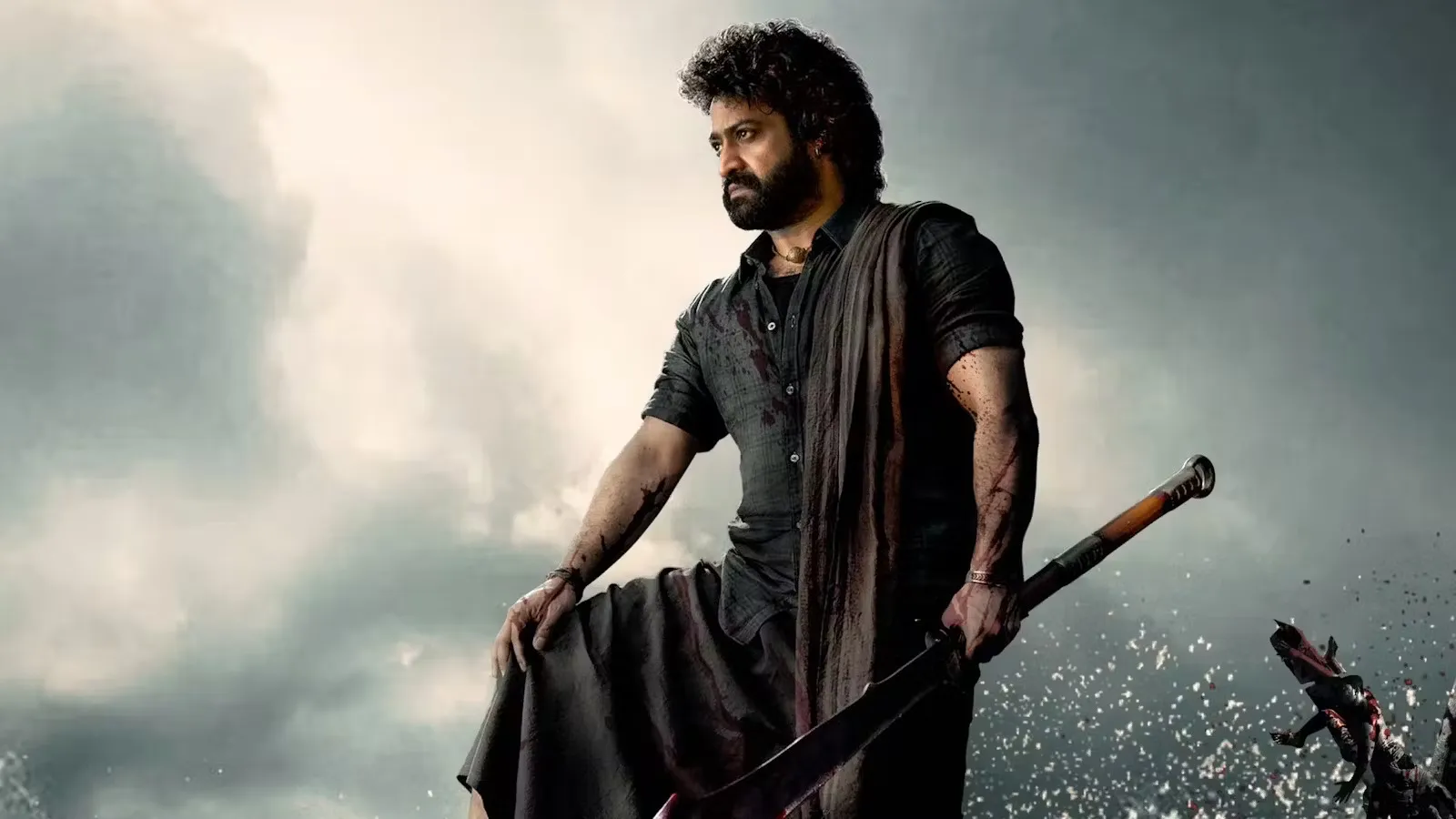
Devara Part 1 dives deep into the heart of coastal India, merging high-stakes action with rich, emotional storytelling. Directed by Koratala Siva, this movie delivers both visually arresting cinematography and a gritty, dramatic narrative that examines the impact of power, loyalty, and revenge. The film stars Jr. NTR as Devara, alongside Saif Ali Khan and Janhvi Kapoor, both in pivotal roles. With its mix of action, suspense, and drama, Devara has quickly become a must-watch on Netflix.
The film is set in a fictional coastal region, where Devara, played by Jr. NTR, emerges as a man caught in the crossfire of a world rife with ambition and betrayal. The narrative pivots around land issues and the power struggles within the community, which expose Devara’s journey from a common man to a feared figure within his circle. Saif Ali Khan’s antagonist is a complex and calculated character whose machinations add depth to the storyline, setting the stage for a high-stakes conflict with Devara.
The film uses classic Bollywood tropes of revenge and honor but explores them through a modern lens. Devara’s journey is marked by his raw emotional drive and relentless courage, and the character’s depth makes him a gripping protagonist. Janhvi Kapoor adds a softer, more vulnerable counterbalance as Devara’s love interest, providing relief amid the film’s intensity.
Jr. NTR shines in the title role, embodying Devara with both intensity and vulnerability. His transformation into this hardened figure is subtle and believable, allowing viewers to empathize with his struggles. Saif Ali Khan, as the antagonist, is charismatic yet menacing, bringing layers to his role that make him much more than a standard villain. Janhvi Kapoor, while not the primary focus, delivers a grounded performance, effectively conveying the emotional depth needed in a film as intense as this.
One of the strongest elements of Devara Part 1 is its cinematography. Siva and his team bring the coastal setting to life, with expansive shots that capture the rugged beauty of the region. Each scene is meticulously crafted to capture the landscape’s natural colors and textures, lending authenticity to the story. The high-quality production value, along with the tight pacing and impressive action sequences, ensures that the audience remains engaged from start to finish.
Korotala Siva’s direction keeps the narrative’s emotional core intact while focusing on action and drama. The way he layers tension and reveals character motives adds a degree of realism rarely seen in mainstream cinema.
At its core, Devara is about the moral complexities that arise when survival and loyalty collide. It tackles themes of power, corruption, and revenge, all within a tightly woven plot that never strays too far from the human element. The film also dives into social issues, shedding light on the systemic corruption affecting the lives of ordinary people in coastal India. Devara’s journey is one of self-discovery and confrontation with societal norms, and this depth keeps the film compelling beyond its action sequences.
The film also sets up exciting possibilities for Devara Part 2, hinting at an even deeper exploration of these themes, as the stakes rise and alliances shift.
Devara Part 1 combines strong performances, beautiful cinematography, and a gripping storyline. While it does lean on some familiar tropes, the story’s authenticity and Siva’s nuanced direction make it a worthwhile watch. The movie’s pacing, engaging plot twists, and character-driven drama make it hard to turn away.
Rating: 4.3/5 Devara Part 1 is a compelling drama that balances action and emotion, making it a standout in Netflix’s lineup. It’s perfect for viewers looking for a powerful storyline mixed with well-executed action. Highly recommended for fans of Bollywood cinema and anyone who appreciates stories with moral complexity.
TV
How the TV Show ‘Buffy’ handled SA
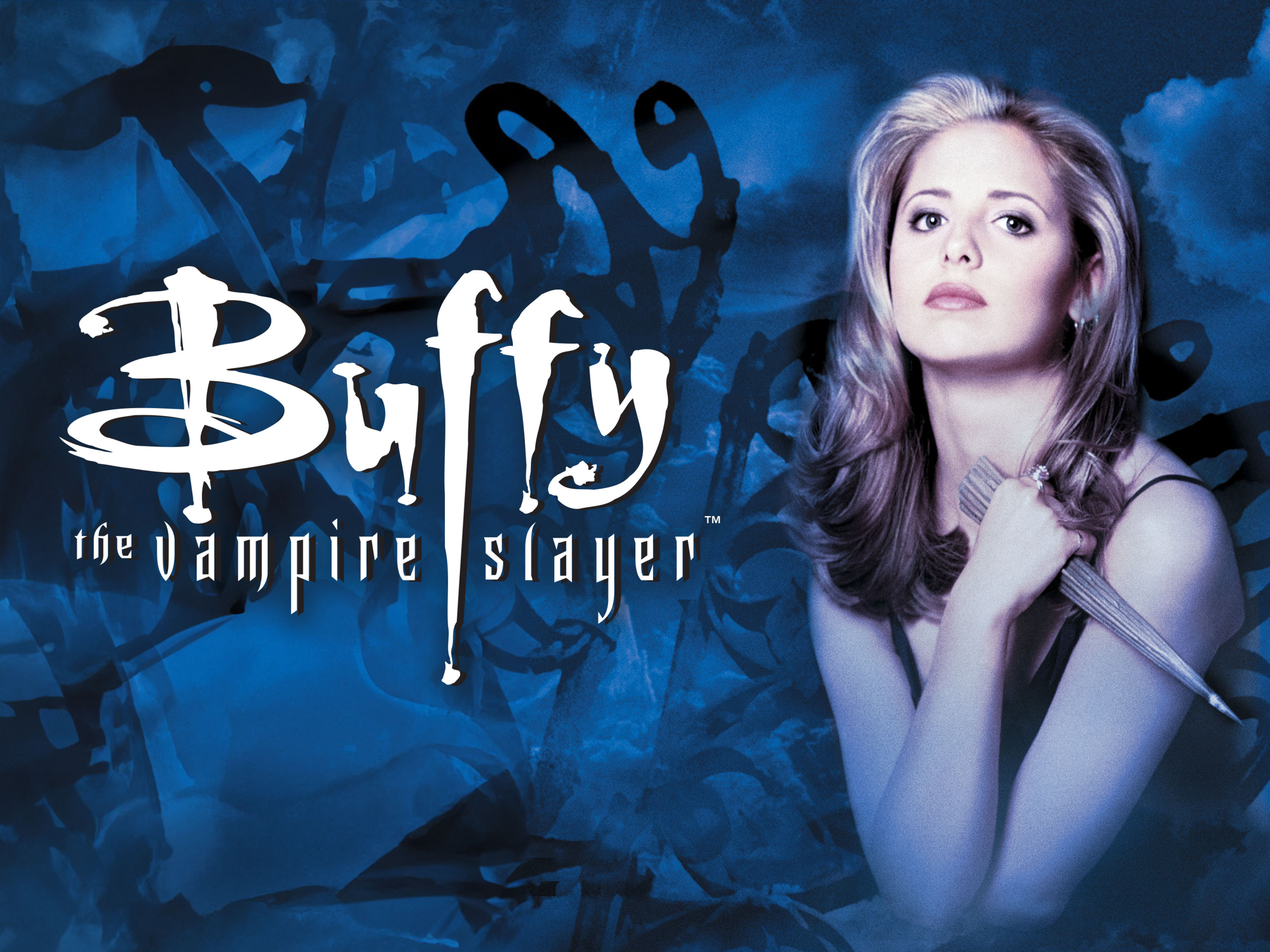
Trigger Warning: Discussions of sexual assault and rape.
In a lot of ways Buffy the Vampire Slayer was more than just a TV show…it was a feeling.
No. But it did change the way heroines were written and showed the world how awesome and self-aware supernatural comedies could be. In the mid-’90s to early ‘00s, Buffy influenced everything from fashion trends to the way we speak. The linguistic feature of speakers ending declarative sentences in an upward inflection (like everything is a question). This phenomenon, known as ‘upspeak’, became popular in the mid-90s to the horror of many a boomer.
Buffy was progressive in many ways for its time. A strong (yet at times, admirably vulnerable) relatable heroine. Buffy was cool, independent, and brimming with quippy comebacks. Buffy’s creator, Joss Whedon, may have turned out to be the bad guy but he did create an admirable main character and immerse us in her world. Buffy was one of the first primetime network shows to have a gay main character and a lesbian relationship. Lesbian-identified Willow Rosenberg ushered in a new age of sapphic style that helped generations of queer young people come out.
Throughout the show, Buffy has not one but two hot, badass vampire boyfriends. What’s not to love?
Well, as it turns out; a lot of stuff. Like many shows from that era, Buffy doesn’t always adhere to the morals and values of 2024. I am, and have pretty much always been, a Buffy obsessive (to varying degrees). Even I can admit the main cast wasn’t exactly diverse. There are of course insensitive comments and jokes that wouldn’t fly today, but what I want to focus on is the show’s treatment of sexual assault.
In Western culture, rape is seen as one of the worst that can happen to a woman, perhaps even worse than death. Throughout the series, Buffy (and her female comrades) is assaulted numerous times and threatened with rape even more.
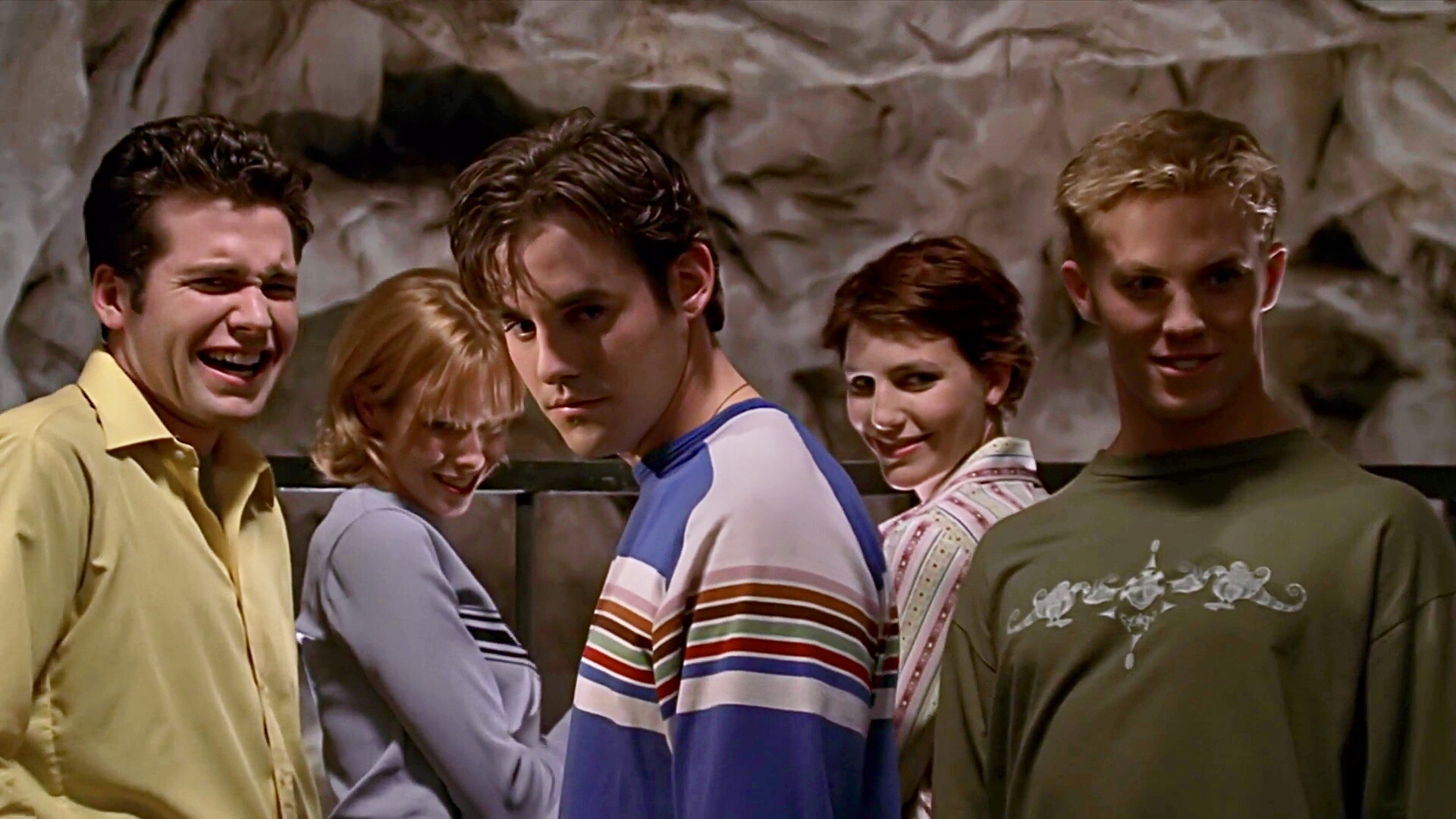
Season 1 Episode 6 – The Pack
In probably one of the weirdest plots, an early ‘monster of the week’ episode. Buffy’s closest male friend is possessed by the spirit of a hyena on a class zoo trip (it happens).
To a lot of modern fans; Xander is the archetypal ‘toxic nice guy’. Identifies as a feminist but regularly slut shames his female friends and has different rules of conduct for them than he does for himself. Regularly treats his romantic partners as less than or infantilizes them. Xander’s questionable behavior aside, this is the first episode where his true nature perhaps shines through.
Up until this point he had been attracted to Buffy. The slayer’s disinterest in anything other than friendship had caused him to act petulant and snidey in ways only a teenage boy can. As loathe as I am to compliment Nicholas Brendon (‘Xander’) the complete personality shift he embodies for possessed Xander is laudable. He’s confident, cruel, and highly sexual. Even vampiric some might say.
Possessed Xander’s newfound animalistic urges lead him to attack Buffy with a strength that matches her own supernatural strength. In an uncomfortable scene, he pins her to a vending machine and tells her: “The more I scare you…(SNIFFS)…the better you smell.”
Buffy escapes by knocking Xander unconscious and remarks to Willow that Xander “tried his hand at felony sexual assault”. It could be argued that Buffy is making light of her trauma by joking about it. However, at the end of the episode, Xander pretends he remembers nothing about his possession but then admits to Giles that he does.
Other more popular recurring characters are forgiven for their horrific behavior due to their lack of souls (being vampires). However, the show never makes clear exactly what a soul is and how it affects a person’s intrinsic goodness. It is unclear what happened to Xander’s soul during his brief possession but the instance is never brought up again.
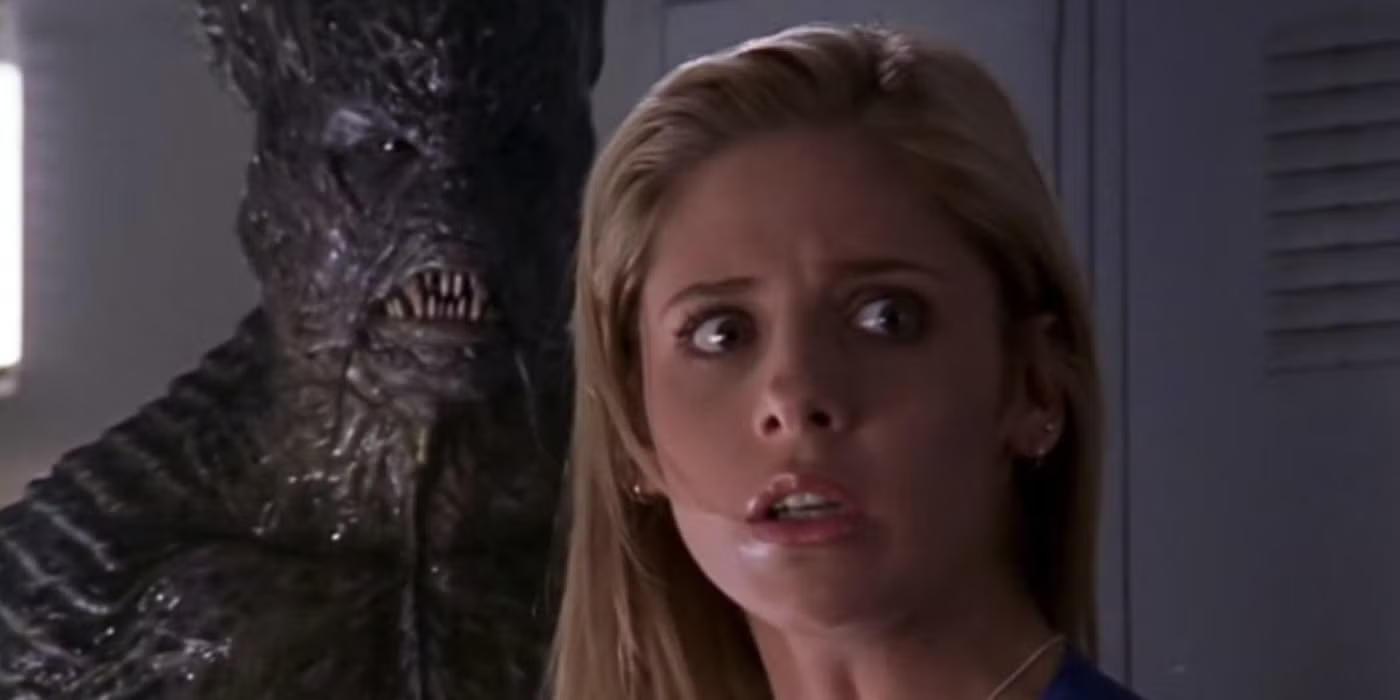
Season 2 Episode 20 – Go Fish
Yet another ‘monster of the week’ episode; the school’s swim team gets turned into sea monsters (again, it happens). Buffy goes on a date with a member of the swim team when she turns down his advances he locks his car door stopping her escape. When he tries to touch her she breaks his nose on the steering wheel. Buffy is blamed by the school for the way she dresses, almost every woman has heard that at least once!
The episode culminates with Buffy being thrown into a sewer with the monstrous swim team by the evil coach. The coach remarks that ‘his boys have already eaten “but boys have other needs”. Threatening our 17-year-old heroin with gang rape. Buffy of course jokes about her predicament and is saved in the nick of time.
It could be speculated that as Buffy is a metaphor in itself that the writers were trying to make a statement about how female victims of young male sports stars are treated.
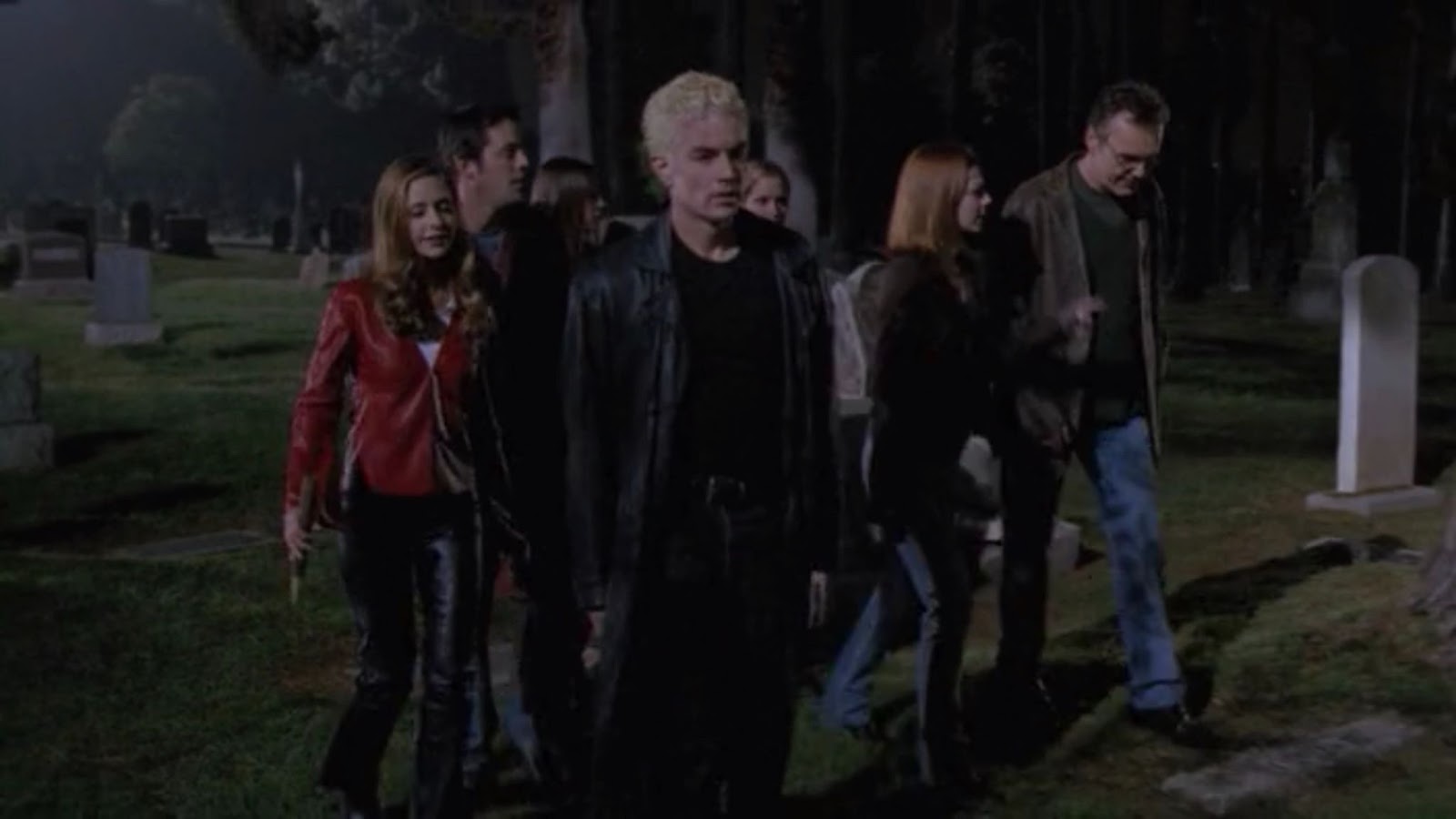
Season 6 Episode 1 & 2 – Bargaining
Season 6 is extremely controversial within the Buffy fandom. Arguably the most polarising of the seasons. Whether you love it or hate it (I love it, just putting that out there) everyone agrees it’s the darkest season. Fittingly the season opens with Buffy being brought back from the dead and digging herself out of her own grave.
A gang of heavily pierced demons is attacking the town and is torturing the Buffybot (a replacement robot for the erstwhile slayer obviously). The head demon refers to Buffybot as “nothing but a toy, a pretty toy” in a sinister and arguably sexual way before we see her being torn limb from bionic limb.
If that’s not bad enough the head demon threatens Buffy’s friends (Xander, Anya, Tara, and Willow) by saying; “we’re just gonna hold you down and enjoy ourselves for a few hours”. He also brags about his gang’s “anatomical incompatibilities that tend to tear up little girls”. The blatant and graphic threat of gang rape disturbed a lot of fans. Was this a sign of things to come with the new direction the show was going in?

Season 6 Episode 19 – Seeing Red
And here we are. We couldn’t talk about the most controversial season of Buffy without discussing its most controversial episode. Seeing Red has fan favorite Spike (vampire) attempting to rape Buffy in her own bathroom after she is injured while vampire slaying.
Throughout most of season 6 Buffy and Spike kindled a sexual relationship. Despite the writers prefacing the two as a metaphor for a toxic relationship, the couple are championed by fans to this day.
The scene itself is horrific. I can recall watching it when it was aired at the age of 12 hesitantly through my mum’s plants it was that awful. On a recent rewatch I committed myself to watching it again thinking it can’t be as bad as I remember, despite always fast-forwarding that bit on my videos (yes, I’m that old). It was as bad as I remembered.
The scene was heavily choreographed with alternating close-ups of Buffy and Spike (separately) to inspire the audience’s empathy with each character. Along with the being so brightly lit, the scene is extremely disorienting. The choice of lighting makes the actors look all too human.
Encouraging empathy for both victim and perpetrator during a rape scene is an interesting premise. Personally, I liked how multilayered and complex Buffy and Spike’s relationship was for what was billed as a teen drama. But I, like many, was traumatized by this scene. James Marsters, who played Spike, calls shooting the scene; “the darkest professional day of my life” (Marsters J, 2024) and sends him to therapy. Buffy herself, Sarah Michelle Gellar (Gellar S, 2024) is quoted as saying that she skips that particular episode while watching with her young family.
Many conspiracies were discussed after the airing of the episode. Many thought that it was creator Joss Whedon’s way of getting the audience to hate Spike. Whedon made no secret about hating Spike and had to be talked into making the series regular due to his popularity. As tempting as it is to blame Whedon, he was barely involved in the show at the time.
It is commendable that Marsters (outing myself as a fangirl here) is willing to honestly talk about how the episode affected him personally and the fanbase. Unfortunately, the show failed to properly address Buffy’s trauma. Despite showing her having PTSD-like flashbacks to the attempted rape when seeing Spike again in Season 7.
To me, Buffy has always embodied everything that is great about being a woman. She’s strong, resilient, and unapologetically feminine. Her story is one of triumph against all odds while still staying true to herself and empowering her friends along the way. As Buffy is a feminine story perhaps it is appropriate that it shows the unfortunate side of being a female presenting person. Women are assaulted regularly and usually by close friends someone they are on a date with or someone they’ve had a sexual relationship with. Many have argued that the handling of these scenes was clumsy or even irresponsible. This may be true but having someone as inspiring as Buffy Summers overcome and thrive after an assault could prove that anyone can and make victims feel less alone.
Buffy is, as always, a source of strength for many.

